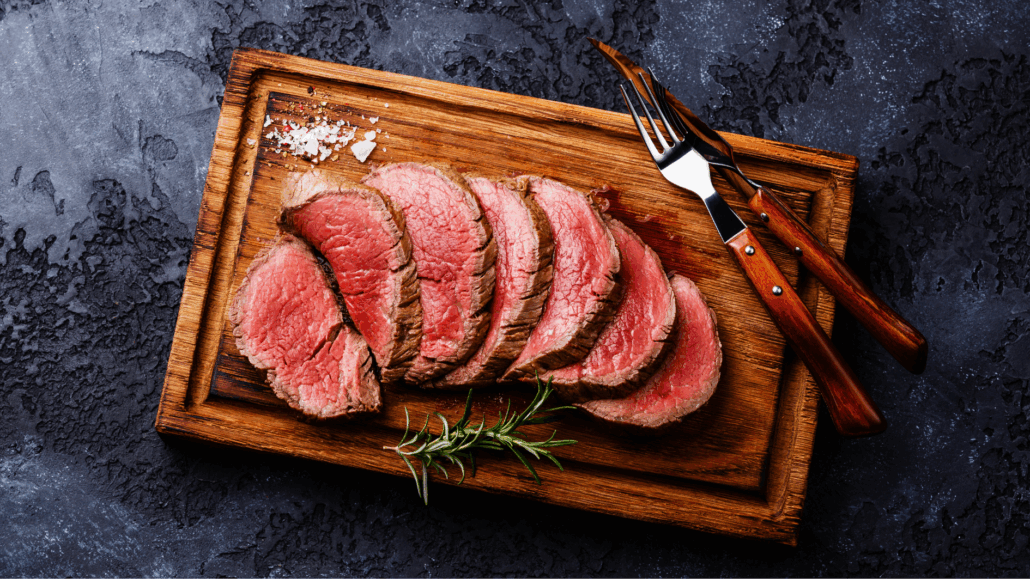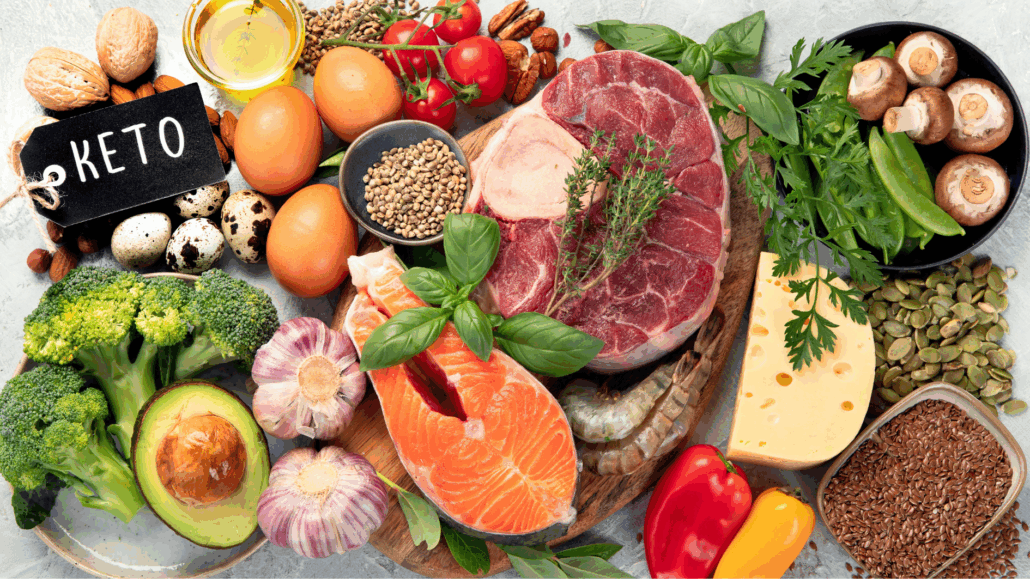We include products in articles we think are useful for our readers. If you buy products or services through links on our website, we may earn a small commission.
Carnivore Diet Eggs: Benefits and Best Ways to Prepare
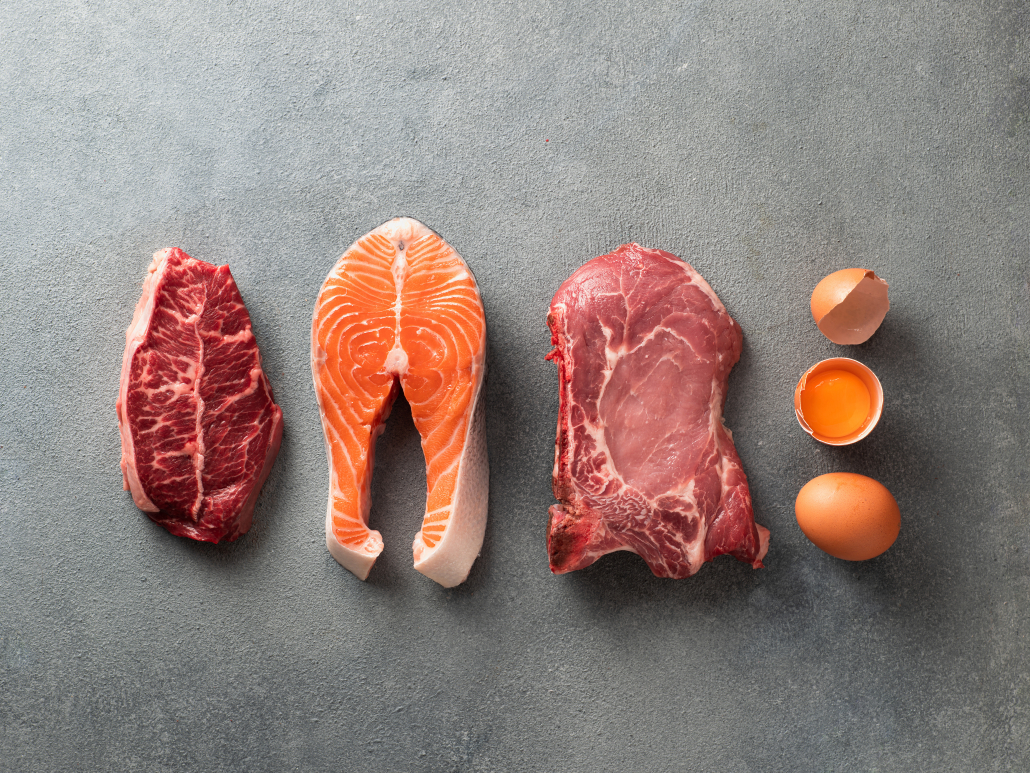
Let’s cut to the chase: For people without egg allergies, eggs are a fantastic addition to your carnivore diet food list.
Yet eggs are right up there with red meat as the most unfairly demonized foods on earth. So this article is here to provide the information you need to feel comfortable about letting eggs out of the cage and back onto your plate where they belong.
Here are the top 3 reasons why eggs are great on the carnivore diet.
Table of Contents
1. Great Source of Healthy Fats
Eggs provide a potent blend of saturated fat, monounsaturated fat, and a small amount of polyunsaturated and omega-3 fatty acids.
Fats in Eggs
| Healthy Fats Per 100 grams of Eggs | |
| Saturated Fat | 3 grams |
| Monounsaturated Fat | 4 grams |
Since a carnivore diet is a low-to-no carb high-fat diet, the fats from eggs are a welcome source of primary fuel.
If you’re still recovering from the decades-long saturated fat scare campaigns, more recent high-quality studies should ease your mind.
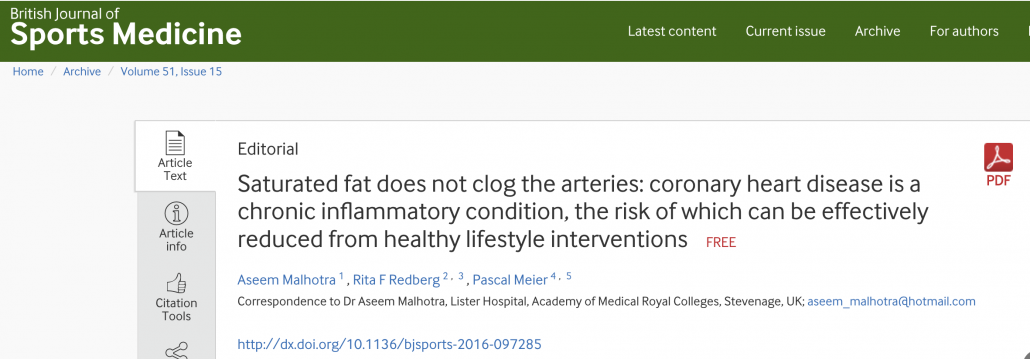
The authors of the above study write :
- Coronary artery disease pathogenesis and treatment urgently requires a paradigm shift. Despite popular belief among doctors and the public, the conceptual model of dietary saturated fat clogging a pipe is just plain wrong.
- A landmark systematic review and meta-analysis of observational studies showed no association between saturated fat consumption and (1) all-cause mortality, (2) coronary heart disease (CHD), (3) CHD mortality, (4) ischaemic stroke or (5) type 2 diabetes in healthy adults.
- Similarly, in the secondary prevention of CHD there is no benefit from reduced fat, including saturated fat, on myocardial infarction, cardiovascular or all-cause mortality.2
- In an angiographic study of postmenopausal women with CHD, greater intake of saturated fat was associated with less progression of atherosclerosis whereas carbohydrate and polyunsaturated fat intake were associated with greater progression.
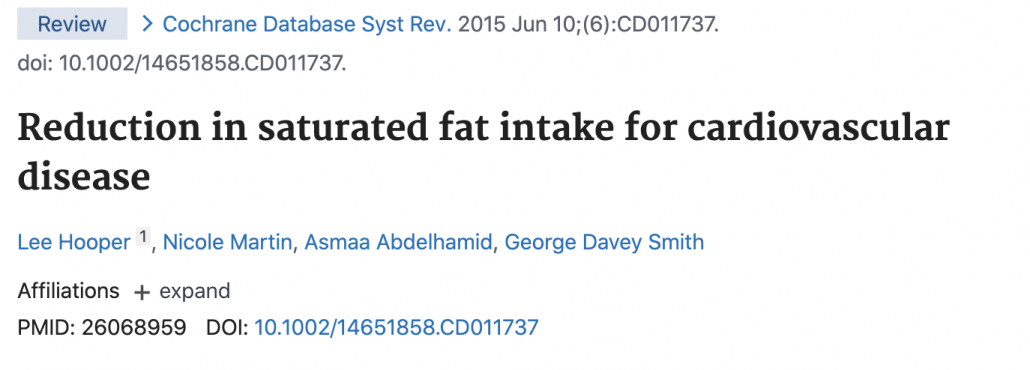
The above systematic review of 15 randomized controlled trials with 59,000 participants found no significant benefit from reducing saturated fats on heart attacks, strokes and all-cause mortality.
Other research shows that eating eggs likely reduces the risk of heart disease.
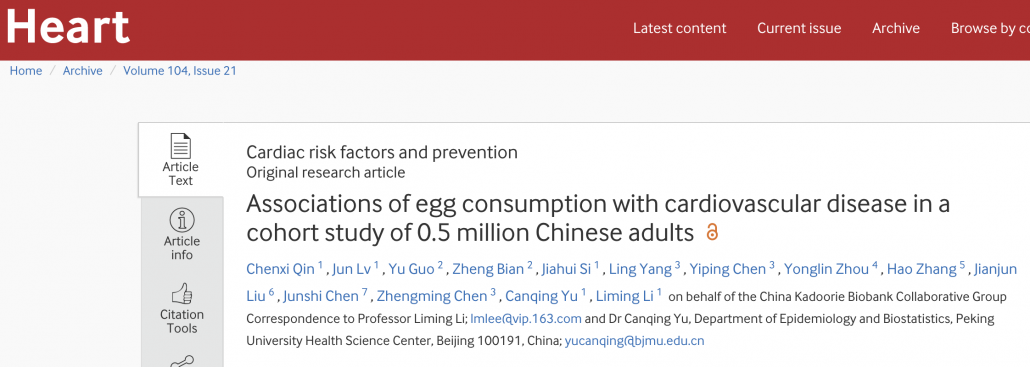
The above study followed half a million Chinese adults. It found that people who ate eggs daily had :
- 14% lower risk of major cardiac events
- 11% lower risk of CVD
- 12% lower risk of ischemic heart disease
- 18% lower risk of CVD death
1. Superior Protein Quality
According to completeness and bioavailability (your body’s ability to absorb and utilitze a nutrient), eggs provide the highest quality protein of any food, plant or animal.
In addition to providing all 9 essential amino acids, eggs also rank at the top of a few other metrics for protein quality, including.
- #1 in Protein Efficiency Ratio: This metric considers how much a protein contributes to growth. Eggs come in at 3.9 compared with beef at 2.9 and peas at 1.4
- #2 in Biological Value: A metric that measures how efficiently your body uses the protein you eat by the proportion retained by the body. Eggs come in at 100, second only to whey protein at 104
- #1 Net Protein Utilization. This measures the ratio of amino acid mass converted to proteins that are used by the body. Eggs score a 94. Soy only comes in at 61
- #1 Digestability Score: A measure of protein quality based on the specific essential amino acid requirements of humans and ability to digest them
Quality rankings of proteins in eggs compared with various animal and plant foods
| Protein Type | Protein Efficiency Ratio | Biological Value | Net Protein Utilization | Protein Digestibility Corrected Amino Acid Score |
| Beef | 2.9 | 80 | 73 | 0.92 |
| Eggs | 3.9 | 100 | 94 | 1.00 |
| Milk | 2.5 | 91 | 82 | 1.00 |
| Casein | 2.5 | 77 | 76 | 1.00 |
| Whey protein | 3.2 | 104 | 92 | 1.00 |
| Soy protein | 2.2 | 74 | 61 | 1.00 |
| Peanuts | 1.8 | 0.52 | ||
| Black beans | 0 | 0 | 0.75 | |
| Wheat gluten | 0.8 | 64 | 67 | 0.25 |
| Rice | 2.0 | 64 | 74 | 0.50 |
| Pea | 1.4 | 58 | n/a | 0.59 |
Source: Nature’s Source and Journal of Sports Science and Medicine.
What all these rankings amount to is the fact that out of 1 gram of egg protein, your body gets and uses more protein than from any other food.
A word of warning: If you want to get all the protein out of an egg, don’t just eat the whites! You’d be missing out on the majority of nutrients, some of which are necessary for the complete synthesis of the proteins in eggs.
3. Numerous Vitamins and Minerals
Eggs are a great source of numerous essential and hard to find vitamins and minerals.
This makes sense when you consider that eggs have all the nutrients necessary to produce a complete living animal.
On average, 2 whole eggs (100 grams) provide:
| Calories | 75 | 5% |
| Fat | 5.5 | 8% (N/A for Keto/ Low-Carb) |
| Saturated Fat | 1.5 | 5% (N/A for Keto/ Low-Carb) |
| Protein | 6.5 | 14% |
Vitamins
| Vitamin A | 400 IU | 8% |
| Vitamin D | 44IU | 7% |
| Vitamin E | 1.2 mg | 6% |
| Riboflavin | .3 mg | 20% |
| Folate | 24 mcg | 6% |
| Vitamin B6 | .1mg | 4.5% |
| Vitamin B12 | .6 mcg | 23% |
| Pantothenic Acid | .7 mg |
Minerals
| Nutrient | Amount | DV |
| Calcium, Ca | 28.00 mg | 2 % |
| Copper, Cu | 0.036 mg | 4 % |
| Fluoride, F | 0.6 mcg | |
| Iron, Fe | 0.88 mg | 5 % |
| Magnesium, Mg | 6.00 mg | 2 % |
| Manganese, Mn | 0.014 mg | 1 % |
| Phosphorus, P | 99.00 mg | 14 % |
| Potassium, K | 69.00 mg | 1 % |
| Selenium, Se | 15.3 mcg | 28 % |
| Sodium, Na | 71.00 mg | 3 % |
| Zinc, Zn Choline | 0.65 mg 147mg | 6 % 27% |
Proteins and Amino Acids
| Nutrient | Amount | DV |
| Protein | 6.28 g | 13 % |
| Alanine | 0.367 g | |
| Arginine | 0.410 g | |
| Aspartic acid | 0.664 g | |
| Cystine | 0.136 g | |
| Glutamic acid | 0.837 g | |
| Glycine | 0.216 g | |
| Histidine | 0.154 g | 22 % |
| Isoleucine | 0.336 g | 24 % |
| Leucine | 0.543 g | 20 % |
| Lysine | 0.456 g | 22 % |
| Methionine | 0.190 g | |
| Phenylalanine | 0.340 g | |
| Proline | 0.256 g | |
| Serine | 0.485 g | |
| Threonine | 0.278 g | 26 % |
| Tryptophan | 0.083 g | 30 % |
| Tyrosine | 0.249 g | |
| Valine | 0.429 g | 24 % |
| Phenylalanine + Tyrosine | 0.589 g | 34 % |
| Methionine + Cysteine | 0.190 g | 18 % |
The Benefits of Choline in Eggs
Choline is a vitamin that’s abundant in eggs, essential for numerous physiological functions, yet rarely talked about. Let’s change that.
Choline has many roles in the body, including :
- neurotransmitter synthesis
- cell-membrane signaling
- lipid transport
- methyl-group metabolism.
- crucial for brain development
- memory development in infants
- can lower the risk of neural tube defects in infants
- especially vital for pregnant and nursing women
Deficiency in choline has been linked to liver disease, heart disease, and potential neurological disorders.
Here’s another area where you don’t want to miss out on egg yolks–there the most concentrated source of choline providing 680 milligrams per 100 grams.
Luckily, if you do have egg allergies, you can get it from other carnivore diet foods like beef liver (333 mg per 100 g), while muscle meat can provide a moderate amount (lean beef has 85 mg per 100 g.
The current RDA of choline for men is 550 mg/day and for women is 425 mg/day. So you’ll get there with just 2 eggs.
It’s also worth noting that RDA for choline, as with all other nutrients, is for a general population consuming a grain-based standard American diet.
On carnivore, you’re eliminating antinutrients that inhibit your body from absorbing nutrients from food. So you’ll likely need to be consuming even less choline and other nutrients to receive their full benefits.
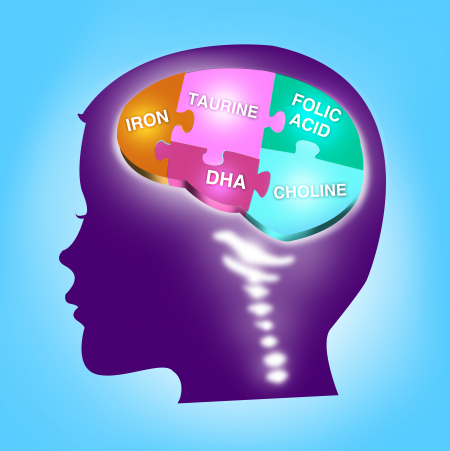
Cholesterol in Eggs
Unlike choline, you’ve probably heard a lot about cholesterol in eggs. And if you believe the outdated nutritional advice, you probably think of cholesterol like poison. But this couldn’t be further from the truth.
Cholesterol is one of the most important elements of human life. It’s an essential component for the membrane of every cell in our bodies. And the brain is the most cholesterol-rich organ in our bodies.
Though your brain makes up only 2% of a person’s body weight, it contains around 20% of the body’s cholesterol. This speaks to the critical role of cholesterol in brain function. Cholesterol also works as a precursor in the synthesis of vitamin D, and numerous hormones. And it’s a component of bile salt that your body uses to digest and absorb fat-soluble vitamins A, D, E, and vitamin K2.
In fact, cholesterol is so crucial to keeping you alive that if you don’t get enough from food, your body will produce it on its own.
So why are you terrified of cholesterol?
Bad science from the 1960s. The infamous seven countries study by Ancel Keys erroneously linked saturated fat consumption with the risk of heart disease. People with heart disease often had high cholesterol levels.
However, there is no evidence that the cholesterol we get from food increases bad cholesterol (LDL) for most people.
Some evidence suggests that it may increase your good cholesterol HDL.
What’s more, numerous modern studies link high cholesterol with lower mortality risks. At the same time while low cholesterol has been shown to increase many health risks including all-cause mortality.
For instance, in this randomized control trial looking at the efficacy of replacing saturated fat with polyunsaturated fats, researchers lowered cholesterol 14%.
However, this resulted in a “22% higher risk of death for each 30 mg/dL reduction in serum cholesterol.”
Numerous studies looking specifically at the role of eggs in cholesterol show that eggs increase HDL (“good”) cholesterol.
And 70% of people who consume eggs experience no increase in total or LDL cholesterol. Some people may experience a mild increase in a benign subtype of LDL that does not affect cardiovascular function.
Worry about Carbs, Not Cholesterol
Other research shows that it’s not the cholesterol in food that we should be worried about but the carbs.
When you get more than 60% of your calories from carbs, you’re lowering your “good” HDL cholesterol while raising triglycerides–both things you want to avoid in order to support your heart health.
Lutein and Zeaxanthin
Lutein and Zeaxanthin are two antioxidants in eggs that won’t show up on the label.
These antioxidants protect your vision by battling against free radicals that can accumulate in your eyes.
Studies show that they protect against age-related macular degeneration (AMD), and they can slow the formation of cataracts.
These two compounds may even be protective against damaging blue light emitted from your computer screen as you read this.
Best Way to Cook Eggs on Carnivore
There are numerous ways to eat eggs, some better than others, but all of them good, with none linked to negative health consequences. Here’s a rundown.
Hard Boiled
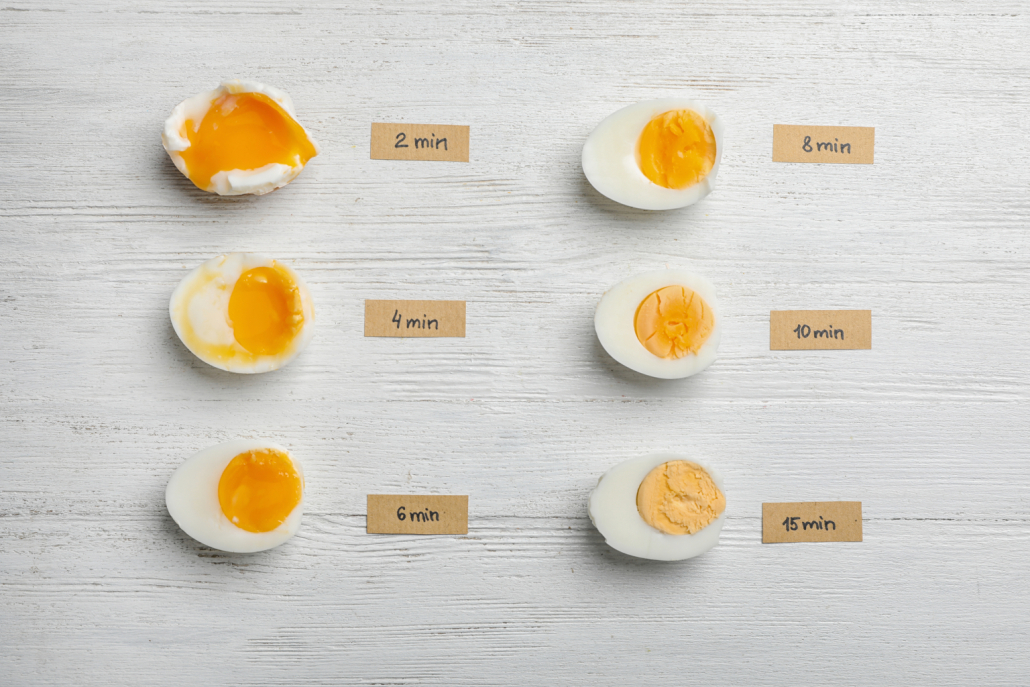
Hard boiling eggs protects the cholesterol in yolks from oxidation due to high heat exposure.
Oxidized cholesterol can result in potentially harmful compounds called oxysterols.
Though eggs have not been linked to heart disease, these compounds have.
But it’s important to note that nearly all dietary oxysterols come from fried junk food and not eggs.
It’s also worth highlighting that the cholesterol that becomes oxidized in the body from consuming processed foods and added sugars is far more dangerous than dietary oxidized cholesterol.
When compared to baking eggs, hardboiled eggs lose only 18% of their vitamin D, whereas baking eggs can reduce vitamin D by 61%.
Scrambled Eggs
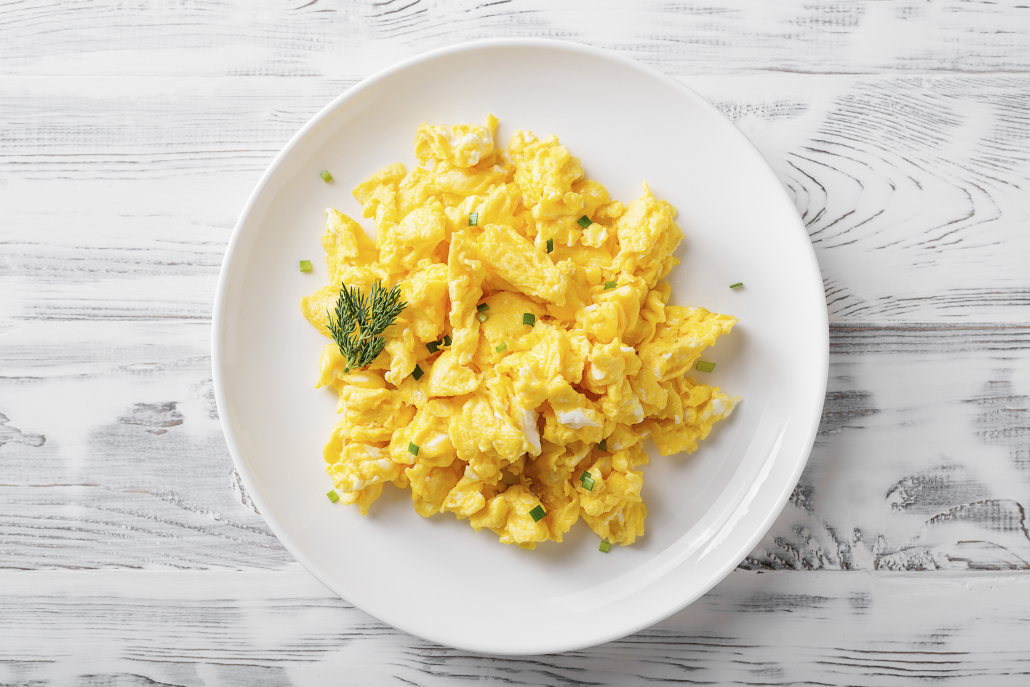
Though scrambled eggs expose cholesterol to heat and potential oxidation, it’s not really something to worry about.
If you are concerned, opt for a soft scramble.
Raw Eggs
Some popular carnivore dieters like Paul Saladino swear by raw eggs.
It is true that cooking eggs can reduce their nutrient concentrations, including their antioxidants by 6–18%.
But there are upsides to cooking eggs–especially when it comes to digesting the protein.
Studies comparing raw and cooked eggs have found that the body is able to utilize 91% of the protein in cooked eggs, but only 51% in raw eggs.
You can watch Dr. Saladino discussing eating raw meat and eggs below:
Poached Eggs
If your goal is to get the maximum nutrients out of your eggs, poaching them is the way to go. Poaching exposes eggs to relatively low heat for a short period of time and leaves yolks intact.
Poach your eggs by simmering water between 160–180°F (71–82°C). Get the water spinning, then crack in an egg and let cook for 1–3 minutes.
What are the Best Eggs on a Carnivore Diet?
As with all animal products, the happier and more naturally raised, the higher quality the food.
The happiest hens, most well-fed hens are pasture-raised, certified humane, and certified organic.
A 2007 survey by Mother Earth News compared USDA caged eggs with the eggs from 14 flocks of pasture-raised egg producers. Pasture-raised eggs provided:
- 700% more beta carotene
- 1/3 less cholesterol
- 2/3 more vitamin A
- 200% more omega-3 fatty acids
- 300% more vitamin E
- Another study found pasture-raised eggs have higher vitamin D
| Values per 100 grams | Vitamin E | Vitamin A | Beta Carotene | Omega-3s | Cholesterol |
| Eggs from Caged Birds | .97mg | 487IU | 10mcg | .22g | 423mg |
| Pasture-Raised Eggs | 3.73mg | 792IU | 79.03mgc | .66g | 277mg |
For a full guide to the best eggs to buy, click here
Carnivore Diet Eggs: The Bottom Line
When we look at all the evidence, it’s clear that eggs are a remarkably healthy and nutrient-dense food.
If you don’t have egg allergies, then enjoying eggs on a carnivore diet, either as part of your OMAD protocol or as a carnivore diet snack is encouraged.
If you’re coming to carnivore with serious autoimmune disorders or other serious health conditions, it may be best to practice a carnivore elimination diet (lion diet) of just fatty red meat, water, and salt, then to gradually add in other foods like eggs.











